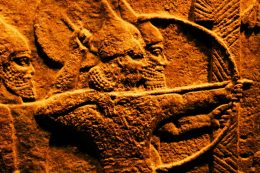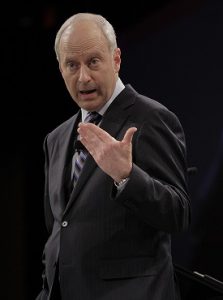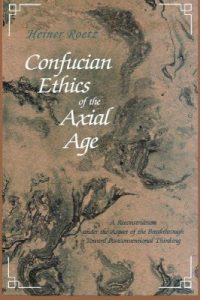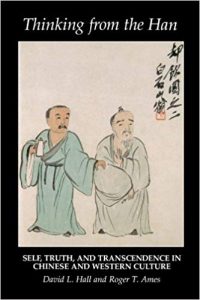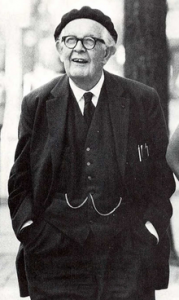Camille Paglia infuriated feminists when she observed in Sexual Personae: Art and Decadence from Nefertiti to Emily Dickinson (1990) that males – as biological beings – are responsible for the development of civilized life and most of the world’s cultural creativity. What no one has wanted to say is that the implicit argument throughout Sexual Personae is that only white males have possessed the Apollonian rationality that “has taken us to the stars.”
Author: Ricardo Duchesne
-
5,530 words
Part 4 of 4 (Part 3 here)
Definition of “Axial thought”
The Axial Age idea is the most concerted effort to retain aspects of the idea of progress while disallowing Western civilization from claiming to be the most progressive in the sciences, technology, cultural creativity, and forms of state organization. This idea has historical merits. (more…)
-
4,700 words
Part 3 of 4 (Part 2 here, Part 4 here)
Rituals in simple mythic cultures
According to Bellah, humans express their highest values and cultural practices in those activities we define as “play” and “ritual,” because these activities are performed when humans are in a “relaxed” state away from evolutionary pressures. (more…)
-
-
3,787 words
Part 1 of 4
Only European peoples have made history and discovered the idea of time, and this is why the idea of progress is uniquely European: Only European history has been characterized by progress, and there can be no conception of historical time and no history without progression or without man becoming conscious of his role in the making of history, as well as the realization that only the mind can be the adjudicator of the truth. (more…)
-
1,999 words
The rise of nationalist populism has shaken the globalist establishment far more than the rise of Islamic radicalism did in the 1990s and after. Muslim terrorism merely encouraged globalists to bring more “moderate” Muslims to the West to show undisturbed confidence in the value of diversity. The more Muslims have bombed the West, the more power “moderate” Muslims have gained by way of grants, affirmative action, spread of businesses, regulations against “Islamophobia,” and endless eulogies about their “indispensable” contributions. (more…)
-
7,982 words
Half of my book, The Uniqueness of Western Civilization, is about discrediting the multicultural claim that, as late as the mid-1700s, the West was no more advanced than the major civilizations of Asia, or China in particular, and that only a set of fortuitous circumstances gave the West a chance to industrialize first. The West did not “stumble” accidentally into the New World, I argued, and it was not “easy access” to the resources of the Americas, enslavement of blacks, or availability of cheap coal in Britain that made Britain’s takeoff possible.
-
As the Chinese “silent invasion” of Australia, New Zealand, and Canada continues, you may want to learn something about the Western academics who lay the intellectual groundwork for this invasion. In a prior article, “The Transcendental Mind of Europeans Stands Above the Embedded Mind of Asians,” we met two influential scholars calling upon whites to abandon their “failed” attempts to formulate transcendental truths for the sake of the more “profound” contextual approach of Chinese philosophers with their demonstration that all thinking is “embedded” to a time and a place. (more…)
-
Europeans were the first – and are still the only – race to become conscious of their consciousness, to identify the faculty of thinking as the point from which all knowledge must proceed in separation from all extra-intellectual sources and inclinations, be they conventions of the time, religious mandates, or emotional inclinations.
-
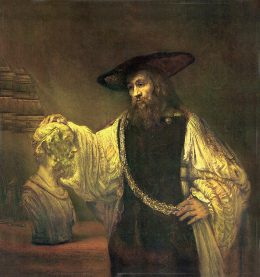
Representatives of two stages of mental development: Rembrandt, Aristotle with a Bust of Homer (1653)
6,358 words
Part 2 of 2 (Part 1 here)
Why did the West rise to become the most powerful civilization, the progenitor of modernity, the culture with the most prodigious creators? The answers are plenty. But it may be that a child psychologist, Jean Piaget, has offered the best theoretical framework to explain the difference between the West and the Rest. (more…)
-
4,677 words
Part 1 of 2 (Part 2 here)
Everyone has heard about Jean Piaget’s (1896-1980) theory of the cognitive development of children. But no one knows that his theory placed Europeans at the top of the cognitive ladder with most humans stuck at the bottom — unless Europeans taught them how to think.
Piaget is widely recognized as the “greatest child psychologist of the twentieth century.” Unlike many other influential figures, Piaget’s discoveries have withstood the test of time. (more…)
-
August 22 marks one year since the release of Canada in Decay: Mass Immigration, and the Ethnocide of Euro-Canadians (reviewed at Counter-Currents here). I thought this book would have an impact in the long run as the first scholarly effort to explain the nature and origins of multiculturalism from a truly critical perspective, without kowtowing to the banks, politicians, and conformist academics. (more…)
-
Part 4 of 4
The Radicalizing Logic of Modern Individualism
With the formation of nation states in the modern era, as liberal institutions were emerging in the form of constitutional rule, freedom of religious expression, and representative bodies in which members of the bourgeoisie were included, (more…)



